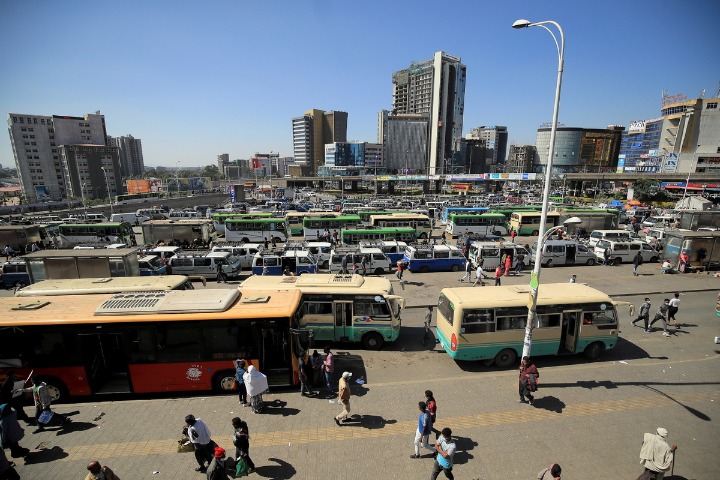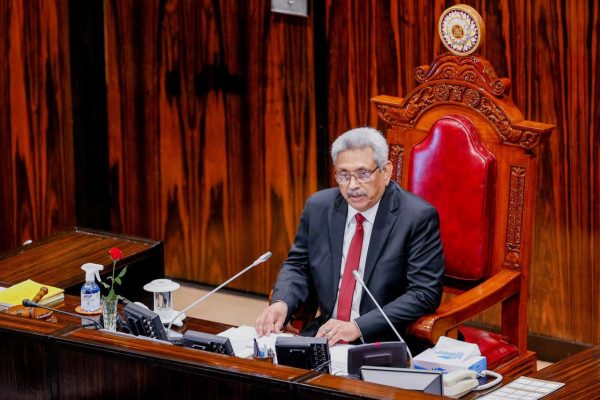Asia’s former richest man faces growing debt crisis

Hui Ka Yan speaks during a press conference on the sidelines of the fourth session of the 12th National People’s Congress on March 6, 2016 in Beijing, China.
Etienne Oliveau/Getty Images
Chinese real estate tycoon Hui Ka Yan is rapidly slipping down the wealth rankings. His net worth fell another $3.35 billion this week, as shares of his Evergrande fell 26%.
Shares of the Hong Kong-listed company have plunged 68% over the past year, and analysts say the once resourceful tycoon appears to be running out of options to avoid a growing debt crisis. It’s a dramatic turn of events for Hui, who was crowned Asia’s richest person just four years ago when his net worth peaked at $45.3 billion. Today, his fortune currently sits at $17.2 billion and it’s unclear how much further it could drop.
The embattled tycoon is struggling to reduce a total debt that rose another 5% to 1.95 trillion yuan ($301.6 billion) last year. Hui has actually managed to get Evergrande out of trouble in the past through various means, such as equity investments and debt sales, but this time it’s different, according to Shen Chen, a partner at Shanghai Maoliang Investment Management. .
“Evergrande’s debt crisis is accelerating,” Shen said. “The company will certainly run into problems because it does not have access to new funding, nor can it dispose of assets quickly enough to raise funds.”
Investors, for example, fear that financial institutions will cut Evergrande’s funding and demand immediate repayments. Last week, a local court froze 132 million yuan in deposits held by Evergrande’s mainland subsidiary, Hengda Real Estate Group, at the request of creditor China Guangfa Bank. Evergrande threatened legal action against the bank on Monday because the loan in question will not be due until March next year. On Thursday, Evergrande said it settled the lawsuit, but did not provide details on the terms of the settlement it had reached with the bank.
Zhou Chuanyi, credit analyst at Singapore-based Lucror Analytics, said Guangfa’s action would likely be driven by growing concerns over Evergrande’s ability to service its debts. The company had only 158.8 billion yuan in cash and cash equivalents at the end of 2020, compared to 335.5 billion yuan in borrowings that were due in the next 12 months, according to its annual report.
“Under normal circumstances, banks won’t go so far as to sue Evergrande,” she says. “But as creditors grow increasingly anxious, they will want to protect their money, and markets fear more financial institutions will follow suit.”
Evergrande did not respond to emailed requests for comment. In the meantime, Hui faces a tighter regulatory environment and finds his other borrowing options seem to be running out. Trust financing, which Fitch Ratings says accounts for about 40% of the company’s interest-bearing debt, is significantly reduced in China. And as a company that continues to violate the country’s “three red lines” policy, which was introduced last year to reduce the systemic risk of excessive leverage in the real estate sector , Evergrande cannot issue any new offshore bonds. market this year.
The company managed to use its own funds to arrange a payment of HK$13.6 billion ($1.75 billion) for the bonds due in June, as well as interest payments on all other notes denominated in dollars, but the market relief was short-lived. Investors are still concerned that Evergrande is simply swapping one form of debt for another. Its trade and other payables, including commercial paper, rose 13.5 percent to 829.2 billion yuan last year.
Invoices, technically not classified as interest-bearing debt, allow Evergrande to pay suppliers at a fixed future date after having already received goods or services. Compared to bond or stock investors, bondholders generally have a lower priority in claiming their payouts. Evergrande had defaulted on commercial invoices several times in the past, before finally agreeing to pay the construction companies in June.
“Suppliers are much less willing to accept commercial invoices from Evergrande now,” Zhou says. “When the company has cash in hand, it can simply choose to pay other creditors first.”
Analysts say the billionaire can still raise cash by selling discounted properties and taking non-essential subsidiaries public. It raised 321 billion yuan in cash from property sales in the first half, according to unaudited results. Last year, it listed its real estate services unit in Hong Kong, raising $1.8 billion.
Now the company plans to take its bottled water unit, Evergrande Spring, public in Hong Kong, according to Bloomberg. But Shanghai Maoliang’s Shen says it’s unclear how investors would react, especially when the parent company is mired in its own financial troubles.
He cites the results of HNA Group and chip giant Tsinghua Unigroup as examples of how Evergrande’s future could unfold. Indebted companies are heading for restructuring after bond defaults and past credit-fueled acquisitions failed to boost business.
Electronics retailer Suning can also serve as a roadmap, says Zhou of Lucror Analytics. Its billionaire former chairman Zhang Jindong resigned after losing control of the debt-strapped company. Earlier this month, Suning secured a $1.36 billion bailout from a state-led investor group that acquired a 16.96% stake. Zhang, a friend of Hui, once waived his right to a 20 billion yuan payment from Evergrande.
“Bringing in strategic investors is the best way for Evergrande,” she says. “But Hui may not want to give up control completely. He can end up giving stakes little by little.





![[Press release] Debt crisis: a failed G20 summit](https://www.cadtm.org/local/cache-vignettes/L710xH373/f0bd231bf33e0619051e008da75a42-274d7.jpg)
